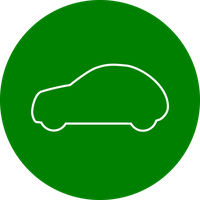
ITEA Impact story
ASSUME

Reducing bugs and false errors to boost efficiency





Impact highlights
- ASSUME has enabled the use of results between different tools including:
- a 50% increase in the (run-time) performance of analysis tools
- a 60% reduction of spurious warnings in analysis tools for single cores
- an almost 100% reduction of error classes in single core analysis
- an 80% or more success rate of traceability of run-time errors back to the model level
- a 40% cut in efforts to inspect runtime errors in a typical industrial setting
- In Bosch, the methods developed in ASSUME are now routinely used for large software products with more than two million lines of code. Furthermore, the methods and tools are being applied in several other business units of Bosch, which can now use formal methods efficiently in real projects.
- FindOut was able to hire two consultants for three years to develop a suite of visualisations for electrical systems, message passing structures and software structures which has now been integrated into tools for system architects at Scania.
- Sorbonne Université and École Normale Supérieure’s results were integrated by AbsInt into their Astrée industrial analysis tool and their partnerships with Airbus and AbsInt were strengthened. As a result, AbsInt was able to develop the first ever sound static analysis for embedded automotive software targeting the novel multicore AUTOSAR standard.
- EXPLEO has extended its software code quality assessment and model quality assessment while continuous customer projects in both fields have resulted in a growth of three highly qualified employees.
Mobility is one of today’s key societal challenges
and is impacted by a huge array of factors, including
global warming, restrictions in the energy supply, an
ageing population and security concerns. Fortunately,
autonomous systems can play an important role in
tackling all of these issues due to the possibilities
for increased safety, reduced fuel consumption and
emissions and social inclusion for the elderly or disabled.
An inherent problem, however, is the excessive amount
of time taken by tools to find bugs and false errors in
autonomous systems. For instance, tools using abstract
interpretation to prove the absence of runtime defects
typically cease to be useful above 200-300,000 lines
of code (depending on the programming features and
complexity), while model checking techniques are
currently limited to much smaller code sizes. This is the
challenge that the ASSUME consortium of 38 partners
from 5 countries set out to meet from September 2015
to December 2018.
Project results
In a nutshell, ASSUME’s main goal was to enable the affordable, standard-compliant development and verification of highly automated, safety-relevant and performance-critical mobility systems. A strong focus on development methods for concurrent systems and static verification techniques allows for the cost-effective proof of the absence of problems, even in a multi-core environment. The major field of innovation for the project’s industrial partners (end-users) was model-based parallel software engineering for multi- and many-core processors. By improving their existing tools and developing new ones, ASSUME ultimately enabled the effective use of formal verification and synthesis technology along the design flow.
Exploitation
The ASSUME partners have seen successes in terms
of technical output, commercial results and ongoing
collaboration. Bosch, for example, worked with several
ASSUME partners to develop new methods and tools for the
sequential verification of very large embedded software.
Through several Bosch use-cases, these lead to a threefold
decrease in the time taken for verification, a reduction of the
memory footprint by a factor of three and a reduction of the
number of false warnings by a factor of up to ten.
BTC ES, MES, Daimler and OFFIS set up a collaborative
toolchain for model-based, requirement-driven development
which integrates the industrial tools of BTC ES and
MES with an OFFIS research prototype. In an industrial
use-case provided by Daimler, it has been shown that this
can reduce the effort for safety verification while improving
requirement traceability.
The main activities of the Swedish consortium were focused
on allowing seamless traceability and impact analysis of
functional and safety properties for Scania’s development
environments alongside SME FindOut. The collaborations
initiated in the project are still running at several levels.
A KTH senior researcher for instance, has been working
part-time as an external consultant for Scania’s R&D team
on technologies initially developed within ASSUME – a great
example of knowledge transfers from academia to industry.
Cross-academic links also had a crucial role to play
in ASSUME. For example, Sorbonne Université and
École Normale Supérieure developed new models and
abstractions that account for the weak consistency
memories of multicore systems, the detection of deadlocks
and the real-time scheduling policies used in multicore
embedded software systems. This produced both
theoretical results and proof-of-concept implementations.
ASSUME made TU/e aware of both the importance and
the costs of fault-resistance, especially in the automotive
domain and for space-critical operations. The developed
advanced analysis techniques have been consolidated
into the publicly-available SDF3 (SDF For Free) toolset
and the open-source tool LSAT and have been used in
collaboration with ASSUME and other partners.
Thanks to newly developed or improved tools, ASSUME
enabled KoçSistem to open up a commercial revenue
stream with Ford Otosan, and start a new, local R&D
project based on automotive manufacturing processes and
two additional ITEA projects, XIVT and PANORAMA.
Around 700 developers currently use one or more tools developed in ASSUME and this number is set to grow, helping society as a whole to make a smooth transition to mobility which is sustainable, affordable and inclusive for all.
More information
Download ASSUME Impact storyRelated projects
ASSUMEOrganisations
AbsInt Angewandte Informatik GmbH (Germany)Airbus (France)
Daimler AG (Germany)
Expleo Germany GmbH (Germany)
FindOut Technologies AB (Sweden)
Ford Otosan (Türkiye)
KTH (Royal Institute of Technology) (Sweden)
KoçSistem (Türkiye)
OFFIS (Germany)
Robert Bosch GmbH (Germany)
Scania (Sweden)
Sorbonne Université (France)
École Normale Supérieure (ENS) (Fran…

